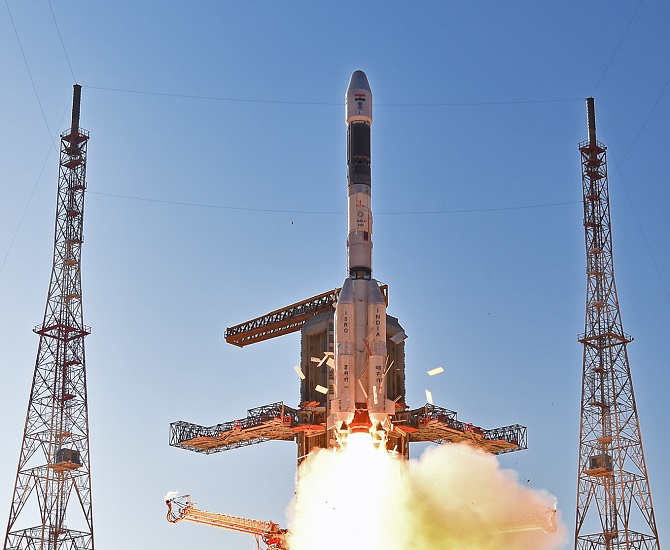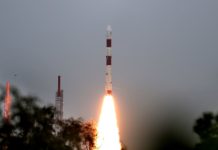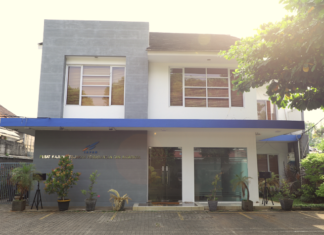India’s Union Cabinet chaired by Prime Minister Narendra Modi has approved the Polar Satellite Launch Vehicle (PSLV) Continuation Programme (Phase 6) and funding of thirty PSLV operational flights under the Programme, according to an Indian government press release. The total fund requirement is 6131 crore INR (US$922 million) and includes the cost of thirty PSLV vehicles, essential facility augmentation, Programme Management and Launch Campaign.
It has also approved funding for the Geosynchronous Satellite Launch Vehicle Mark-III (GSLV Mk-III) continuation programme (Phase-I) consisting of ten GSLV (Mk-III) flights, at a total estimated cost of 4338.20 crore INR (US$652 million). This includes the cost of ten GSLV Mk-III vehicles, essential facility augmentation, Programme Management and Launch Campaign.
PSLV
The Indian Space Research Organisation’s (ISRO’s) PSLV Programme will also meet the launch requirement of satellites for Earth observation, Navigation and Space Sciences. This will ensure the “continuity of production in Indian industry.”
The operationalisation of PSLV has made the country self-reliant in the launching capability of satellites for earth observation, disaster management, navigation and space sciences.
The PSLV Continuation Programme – Phase 6 will meet the demand for the launch of satellites at a frequency up to eight launches per year, with maximal participation by the Indian industry. All the operational flights would be completed during the period 2019-2024.
PSLV Continuation Programme was initially sanctioned in 2008, and four phases have been completed and the fifth phase is expected to be completed by Q2 of 2019-20. The Phase 6 approval will cater to the launch of satellite missions during the period Q3 of 2019-20 to Q1 of 2023-24.
PSLV has established itself as a workhorse vehicle for national satellites with a production capacity that would enable responding fast to commercial launch opportunities also.
GSLV
The ISRO GSLV Mk-III continuation Programme – Phase 1 is the first phase of operational flights that will enable the launch of 4 tonne class of communication satellites to meet the country’s satellite communication requirements.
The operationalisation of GSLV Mk-III will make the country self-reliant in the launching capability of 4 tonne class of communication satellites, and sustain & strengthen the space infrastructure and reduce the dependence on procured launches from foreign countries.
The operationalisation of GSLV Mk-III will make the country self-reliant in the launching capability of 4 tonne class of communication satellites and sustain & strengthen the space infrastructure and reduce the dependence on procured launches from foreign countries.
The GSLV Mk-III Continuation Programme – Phase 1 will meet the launch requirement of communication satellites to meet the national demand for High Throughput Satellites for rural broadband connectivity, increase and sustain the availability of transponders for DTH, VSAT and Television broadcasters.
GSLV Mk-III Continuation Programme – Phase 1 will be the first phase of operational flights of the GSLV Mk-III launch vehicle and the approval will cater to the launch of satellite missions during the period 2019-2024.
The Geosynchronous Satellite Launch Vehicle Mark-III (GSLV Mk-III) has been developed towards achieving indigenous launch capability to launch 4 tonne class of satellites into Geosynchronous Transfer Orbit (GTO). It has completed one experimental flight (LVM3-X) in 2014 and one developmental flight (GSLV MkIII-D1) in 2017. The second developmental flight will be completed by Q2 of 2018-19 this year. The Continuation Programme – Phase 1 will enable independent access to space for 4 tonne class of communication satellites, and establish GSLV Mk-III as a cost-effective workhorse vehicle to launch 4 tonne class of communication satellites in order to meet the national requirements as well as to boost its commercial potential in the international market for launch services.







